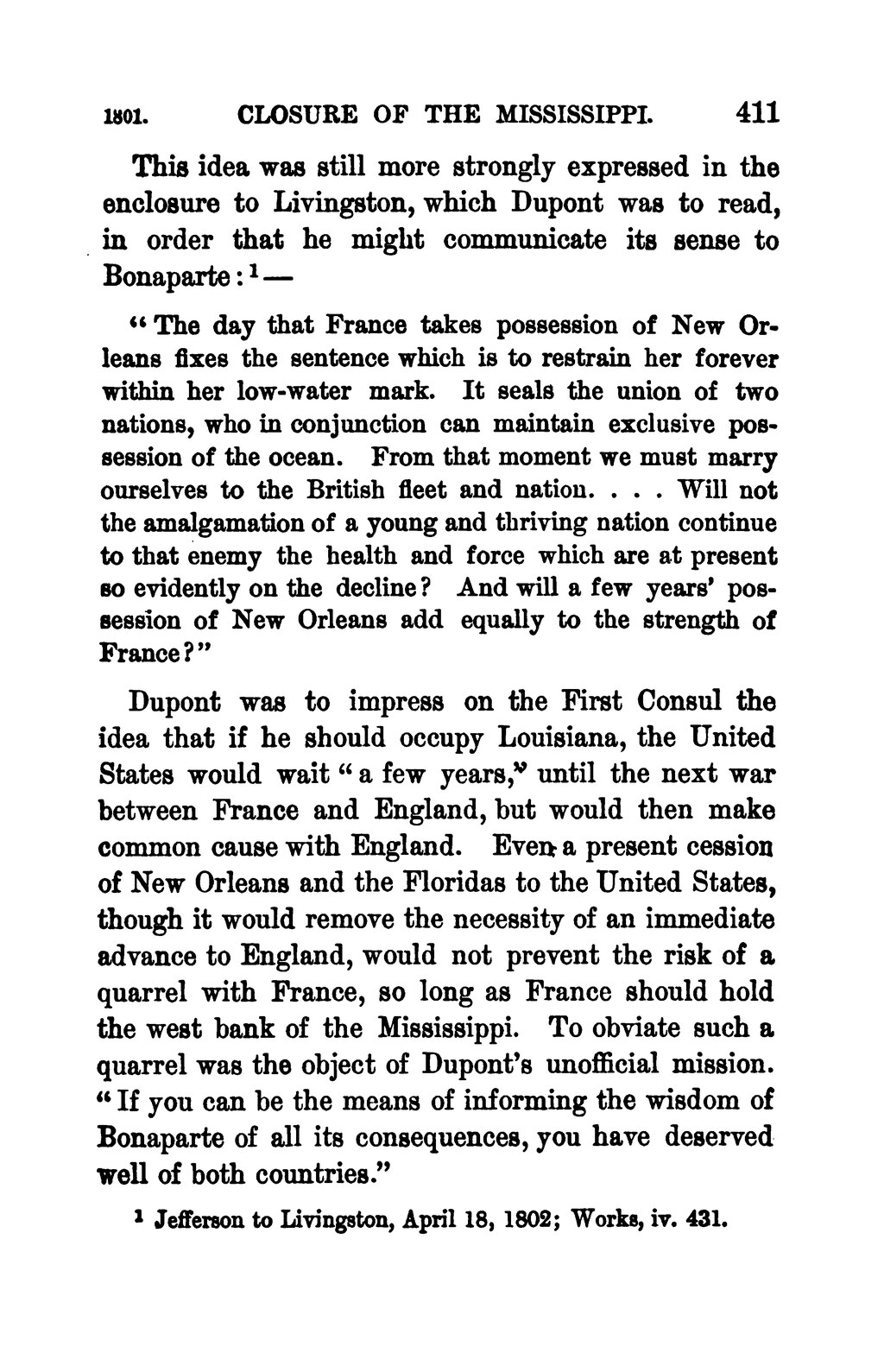This idea was still more strongly expressed in the enclosure to Livingston, which Dupont was to read, in order that he might communicate its sense to Bonaparte:[1]—
- "The day that France takes possession of New Orleans fixes the sentence which is to restrain her forever within her low-water mark. It seals the union of two nations, who in conjunction can maintain exclusive possession of the ocean. From that moment we must marry ourselves to the British fleet and nation. . . . Will not the amalgamation of a young and thriving nation continue to that enemy the health and force which are at present so evidently on the decline? And will a few years' possession of New Orleans add equally to the strength of France?"
Dupont was to impress on the First Consul the idea that if he should occupy Louisiana, the United States would wait "a few years," until the next war between France and England, but would then make common cause with England. Even a present cession of New Orleans and the Floridas to the United States, though it would remove the necessity of an immediate advance to England, would not prevent the risk of a quarrel with France, so long as France should hold the west bank of the Mississippi. To obviate such a quarrel was the object of Dupont's unofficial mission. "If you can be the means of informing the wisdom of Bonaparte of all its consequences, you have deserved well of both countries."
- ↑ Jefferson to Livingston, April 18, 1802; Works, iv. 431.
